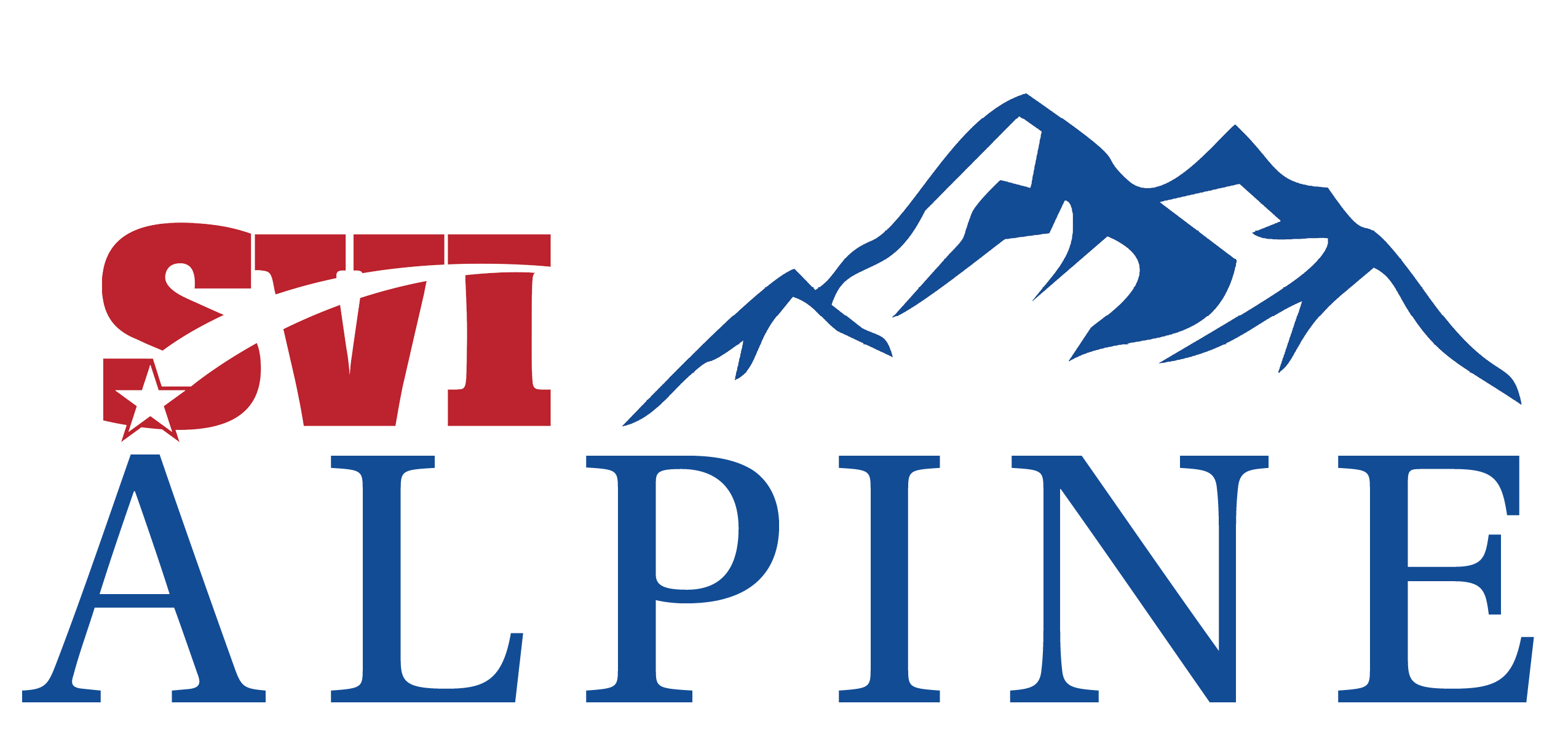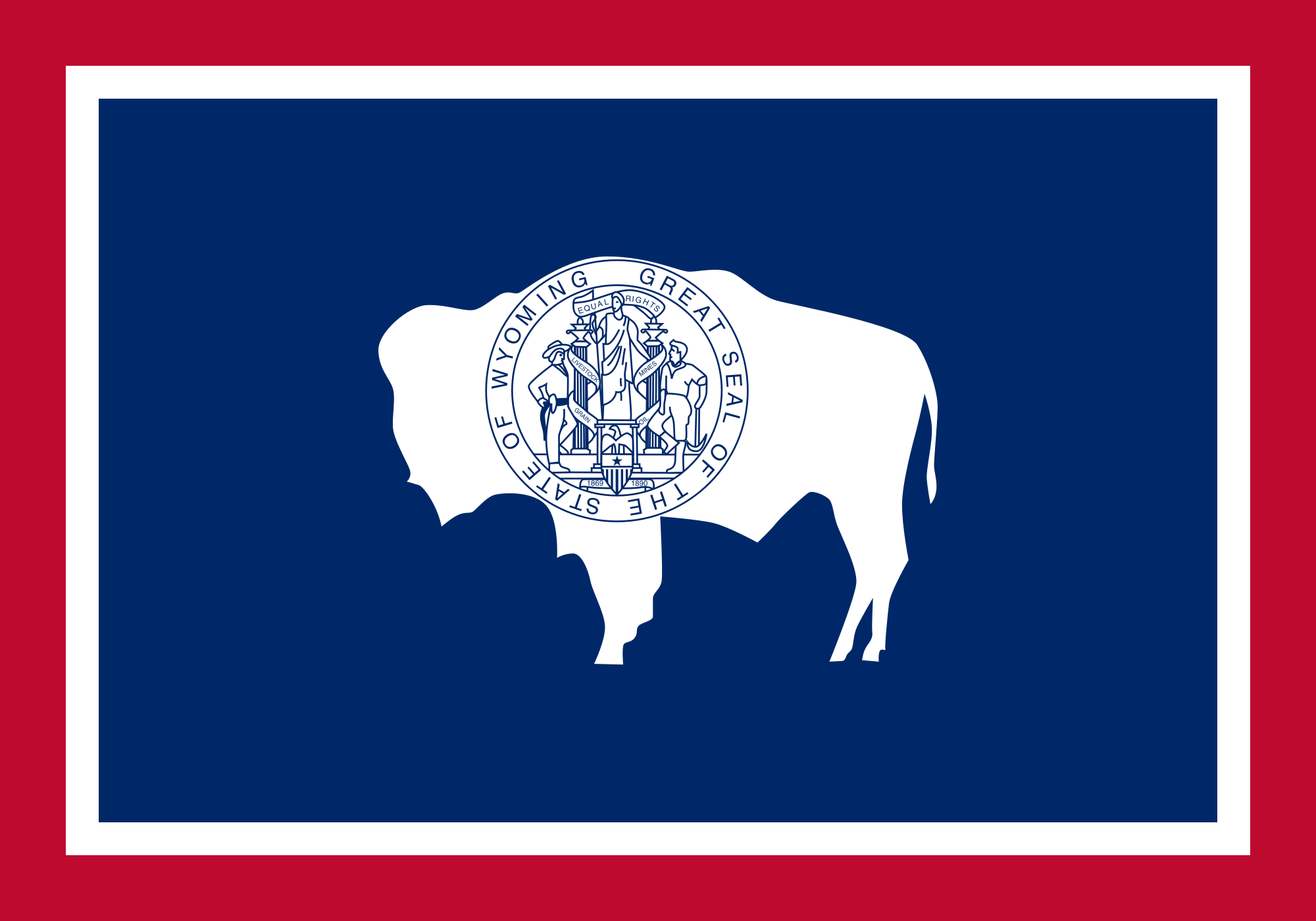Restored property tax cut bill passes Senate, heads to House
By Wyoming News Exchange
February 5, 2025
By Carrie Haderlie and Hannah Shields
Wyoming Tribune Eagle
Via- Wyoming News Exchange
CHEYENNE — A bill to offer all homeowners in Wyoming a two-year, 50% reduction in property taxes has passed the state Senate.
Senate File 69, “Homeowner property tax exemption,” passed in a 23-8 vote on third reading Tuesday.
Last week, the Senate voted to decrease the percentage of property tax relief to 25% of assessed property value up to $1 million. This week, the Senate restored the bill to its original form, approving an amendment brought forward by Sen. Tara Nethercott, R-Cheyenne, in a 19-12 vote.
That amendment brought tax relief back to 50% for all homeowners – with no state backfill and a two-year sunset date.
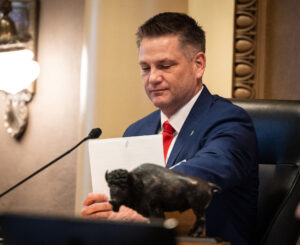
Senator Bo Biteman, R-Ranchester, during the morning session of the 68th Wyoming Legislature January 28, 2025 in the Senate Chambers. Photo by Michael Smith
Senate President Bo Biteman, R-Ranchester, said on the floor that the version passed Tuesday was the bill Wyomingites deserve.
“The people of Wyoming are tired of excuses. They want action, and they want us to deliver for them, finally,” Biteman said, adding that the Senate has been debating property tax relief for years.
“I have said repeatedly, the most difficult thing to do in the Wyoming Legislature is to cut taxes,” he said. “Hundreds of millions of dollars flies out of here every time we do the budget.”
Senate Vice President Tim Salazar, R-Riverton, said this was the Senate fulfilling its promise to provide much needed relief to its constituents.
“We just passed historic property tax relief. We didn’t do it with trumpets. We didn’t do it with fanfare, but we passed it,” Salazar said.
Other senators worried that the tax cut could affect smaller, more rural communities — many of which have not experienced soaring property tax increases — in ways that it may not affect counties where property values have increased by double digits in recent years.
Sen. Stacy Jones, R-Rock Springs, proposed an unsuccessful amendment to use state savings to backfill, or pay back, local governments for 12.5% of the lost revenue under the cut.
In Rock Springs, property taxes have only increased 19.5% from 2019 to 2023. Jones said a 50% cut there would devastate the local civic center, rec center, senior center and services like snow removal.
“What you do today affects all of the communities across Wyoming,” Jones said.
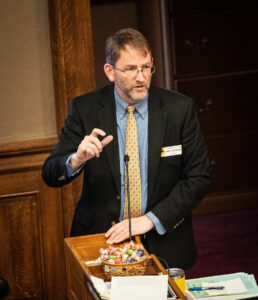
Senator Chris Rothfuss, D-Laramie, speaks during the morning session of the 68th Wyoming Legislature January 28, 2025 in the Senate Chambers. Photo by Michael Smith
However, Sen. Chris Rothfuss, D-Laramie, who voted against the bill, also voted against Jones’ amendment. Rothfuss said the Legislative Stabilization Reserve Account, or the state’s savings, was not designed to pay back tax cuts for citizens.
Others said that they did not support a backfill, but for another reason: To show citizens that the taxes they pay do indeed go toward local services, and when they are cut, so are those services.
Sen. Larry Hicks, R-Baggs, said he could not vote for SF 69 because it created a “one size fits all” solution for all of Wyoming.
Instead, he said the Senate could have chosen to reduce only the assessed state mill levies, without cutting into those assessed by specific counties.
“We could have gone in … to the property taxes that this legislative body is responsible for, and stayed in our lane,” Hicks said. “But we couldn’t stay in our lane. We said, ‘We are going to usurp all those local governments. We are going to have a paternalistic point of view, and we are going to provide property tax relief. Damn with the local governments’.”
Sen. Eric Barlow, R-Gillette, brought forward an amendment that would allow taxpayers to pay the full amount of property taxes due, without the exemption, if they choose to do so.
“I hear from folks who say, ‘I need the services in my community. I want to have a way to pay if there is an exemption, a reduction,’” Barlow said. “This says that if you get the tax bill, and say it is a 50% exemption, that I can pay the full amount without the exemption.”
That amendment passed in a voice vote.
No state ‘backfill’
Senate leaders told the media shortly after the vote they did not remove the state backfill “to make a point.” On the floor, some senators pointed out that removing this backfill would hurt city budgets and reduce local services.
“Our purpose wasn’t to inflict pain or to make a point. We don’t make a point in tax policy,” Biteman said. “It affects people’s lives; it affects the pocketbook. Good tax policy stands on its own. … If you’re going to cut taxes, cut taxes. You don’t take money out of one pocket, put it in the other, and call it a tax cut. And that’s the bottom line with the backfill.”
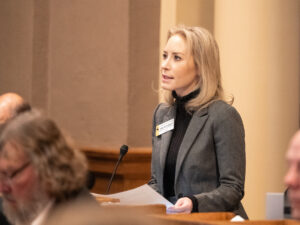
Senator Tara Nethercott, R-Cheyenne, speaks during the morning session of the 68th Wyoming Legislature January 17, 2025 in the Senate Chambers. Photo by Michael Smith
Nethercott added that it’s “not sustainable from a state fiscal perspective” to backfill lost revenue from the state. Local governments need to be self-sustainable on their own revenues, through their own financial planning, she said.
Biteman said there are still some House members who are “hung up” on including a state backfill. However, the Senate president said those members are “coming off of that.”
“I don’t want to speak for them, but it sounds like things are moving,” Biteman said.
Nethercott said on the floor that a vote for the bill would not be a cut in education funding. One of the funding sources for the School Foundation Program is mill levies, which are paid for through property taxes.
Rothfuss agreed the loss in property tax revenue doesn’t cut education funding, but it would force the state to dip into its savings. Currently, the incoming revenue from property taxes matches the expenditure of education funds, he said.
“That’s a good situation to be in, when your revenue and your expenses are about the same,” Rothfuss said. “If we pass this legislation, then we are no longer receiving enough revenue to pay the full cost of the School Foundation Program.”
This would force the state to pull out of its savings account, Rothfuss said, instead of relying on existing revenue.
“That’s unsustainable,” Rothfuss said.
Before becoming law, SF 69 must pass the House and obtain Gov. Mark Gordon’s signature. If SF 69 passes those hurdles, the exemption would first apply to the tax year that began Jan. 1.
